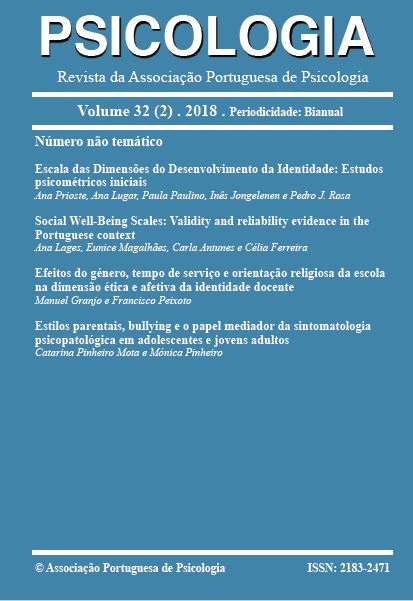Social Well-Being Scales: Validity and Reliability Evidence in the Portuguese Context
DOI:
https://doi.org/10.17575/rpsicol.v32i2.1334Keywords:
Social Well-being Scales, Mental Health, Psychometrics, AdulthoodAbstract
This study aims to provide evidence of validity and reliability of the Social Well-being Scales in the Portuguese context. A cross-sectional study was developed with 322 adults (M = 30.45; SD = 8.52) aged from 18 to 58 years old, mostly females (65.8%). Confirmatory factor analysis revealed a good model fit considering the five-factor model consistent with the original theoretical proposal. Also, additional validity evidence was obtained with statistically significant associations being found between social well-being dimensions and satisfaction with life, depression and anxiety. Reliability data also showed adequate internal consistency of all well-being dimensions. This reliable and valid scale is useful to evaluate social well-being in adulthood in the Portuguese context, not only allowing a more comprehensive approach to the mental health research but also providing opportunities of assessment and intervention focused on a positive framework.


